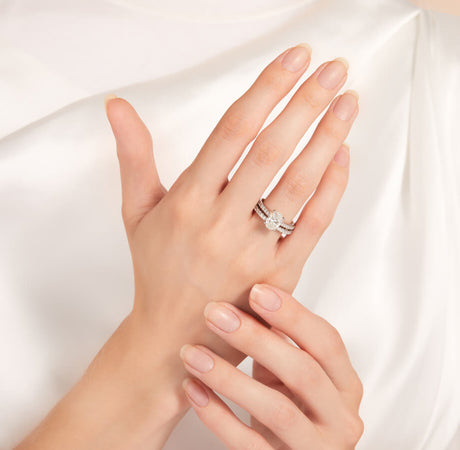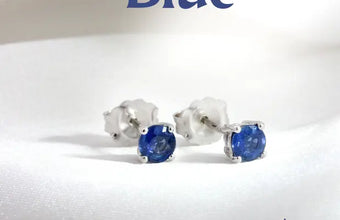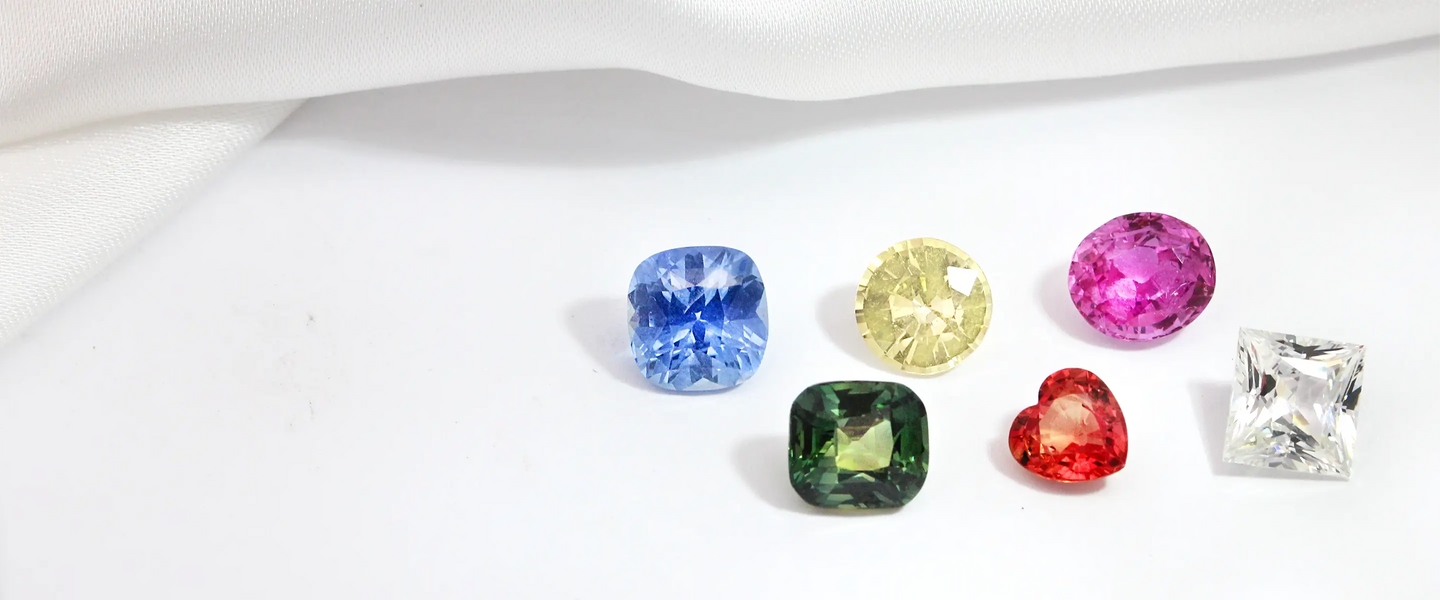
Sapphire Guide
Browse sapphire engagement ringLooking for an engagement ring that isn't traditional? You're not alone. The result shows two-thirds of Millennials and Gen Z prefer alternative engagement rings, with coloured gemstones becoming increasingly popular. Amongst all the options, sapphires are the clear favourite. They come in any colour you can imagine and are incredibly durable, perfect for life-long commitments.
As one of the oldest jewellers in Hatton Garden, our team of gemmologists can guide you through everything you need to know about sapphires and help you find the perfect ring to symbolise your love.
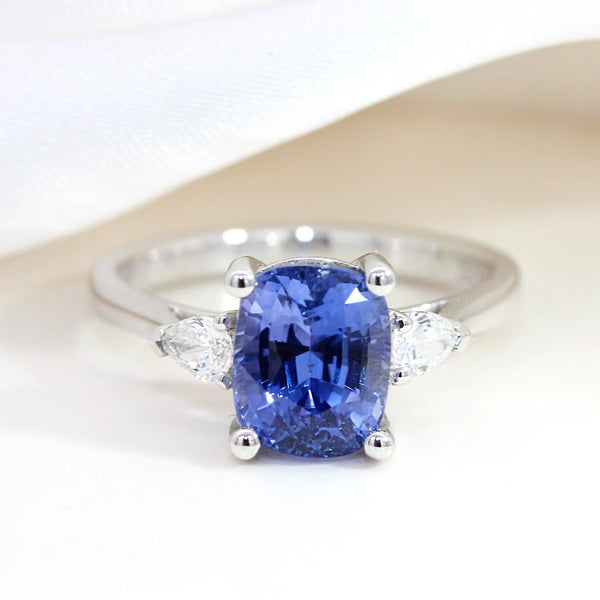
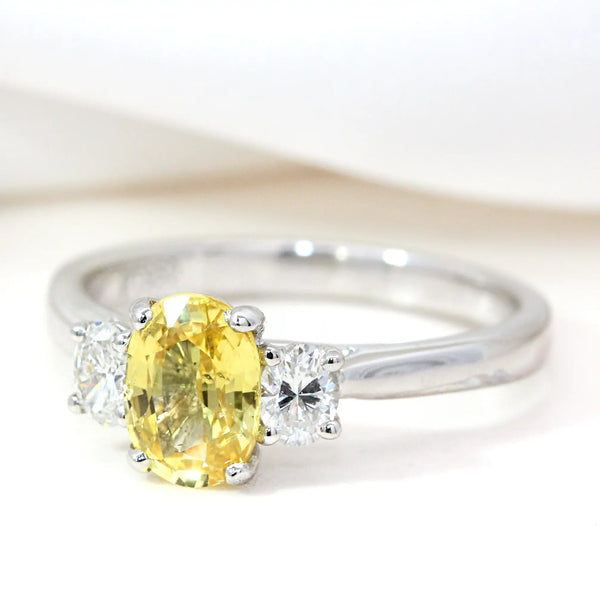
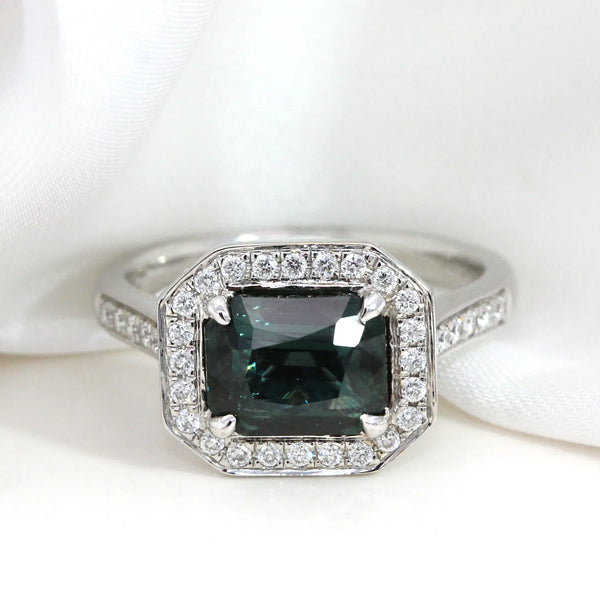
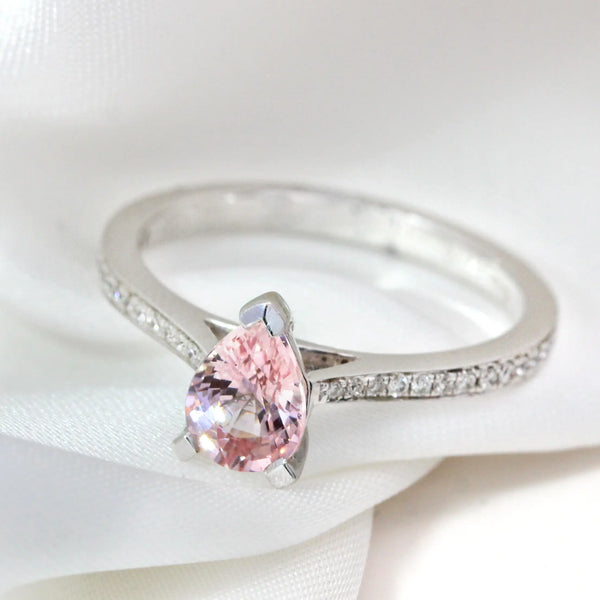
Coloured gemstones
What are sapphires?
The name “sapphire” derives from the word “sappheiros” in ancient Greek which means "blue stone" and is a variety of corundum species.
The word “Sapphire” is often associated with blue colour. The blue, purplish blue and greenish blue colours are caused by the presence of iron and titanium trace elements that produce these beautiful blues. The most valuable colour of sapphire is what is known as the “Cornflower Blue” or “Kashmir” which is a strong pure blue to violetish blue and sometimes has a velvety look. Any other colour, besides red which would make it a ruby, is considered a fancy sapphire such as yellow sapphire, green sapphire and pink sapphire. Within the fancy sapphire range, the rarest and most prized colour is the padparadscha which means “lotus flower” in Sinhalese. The stone is found in Sri Lanka and has a vivid orangey pink to pinkish orange striking colour which is caused by iron and chromium trace elements or by colour centres.
One interesting thing that you might find in sapphires is an inclusion also known as “silk” consisting of fine rutile needles that give a velvety-silky look to the stone.
Two of the most important types of phenomenal sapphires are colour-change sapphires and star sapphires. The former change colour when seen under a daylight equivalent light source and under incandescent lighting and the latter are cabochon-cut stones that display a whitish star created by fine intersecting needle inclusions.
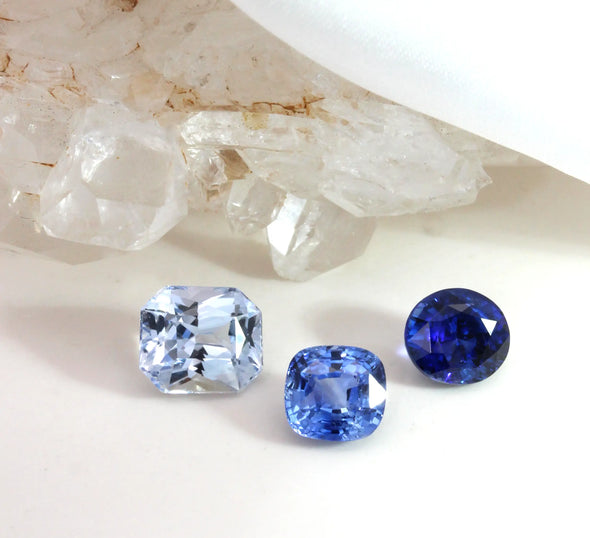
How to choose a sapphire
Sapphire Colour
Sapphires are not like a diamond which has a grading system, however, there are some factors you need to consider. Supported by our sister company, we are thrilled to provide one of the UK's largest collections of coloured gemstones. Our showroom has a wide variety of sapphire shades for you to choose from.
-
In the gemstone world, sapphire is prized for its beautiful and consistent colour. While blue is the most common hue, sapphires can display a wide range of colours due to natural mineral exposure. With our 75 years of experience, when evaluating the stones, we focus on three key attributes: hue, tone and saturation.
-
In the world of gemstones, hue refers to its fundamental colour. Whether it be blue or yellow, a sapphire typically contains a mixture of hues. A sapphire's hue encompasses its primary colour, as well as any secondary colours. This is why you might hear terms like "greenish-blue" or "yellowish-green" used to describe a sapphire.
-
Sapphires come in various shades, but their tone is what truly sets them apart. Tone refers to how deep or light a sapphire's colour appears. For instance, two sapphires can be both blue but have different tones - one may be a pastel blue while the other is a navy blue. The tone also affects the sapphire's value, with medium to medium-dark tones being more sought-after.
-
Saturation is all about the richness of their colour. Sapphires with the highest saturations boast pure colours with minimal impurities and are classified as "vivid" on a colour chart.
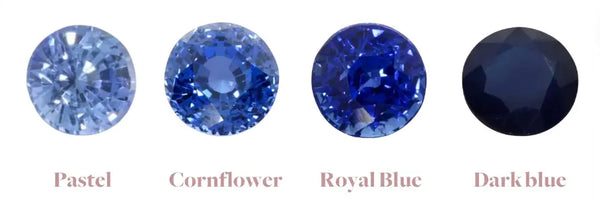
Blue Sapphire
When we say "sapphire," our minds often conjure up the colour blue. The most sought-after blue sapphires span from pale blue to deeply saturated black-blue hues. These gemstones are perfect for celebrating one's 45th wedding anniversary, and they make a charming and meaningful choice as an engagement ring alternative owing to their beauty and durability.

Yellow Sapphire
For those seeking a yellow diamond without busting their budget, yellow sapphire is an excellent alternative. Its hue ranges from delicate lemon yellow to vivid fanta orange, providing a wide range of colour options. Bring sunshine to your finger with the most coveted gemstone hue - canary yellow. Just like Jenny McCarthy's eye-catching engagement ring which flaunts a jaw-dropping 10-carat canary yellow sapphire, surrounded by glimmering diamonds.

Pink Sapphire
From delicate baby pink to bold magenta, pink sapphires offer endless colour options. These precious gems may even have a hint of yellow, giving them a unique peachy or orange tone. Among all sapphires, padparadscha sapphires are one of the rarest. They are renowned for their stunning beauty and unmatched colour combination of pink and orange, often reminiscent of a sunset.
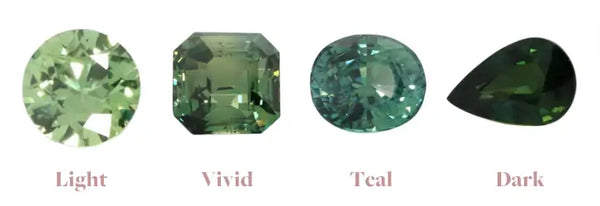
Green Sapphire
Green sapphires are currently in high demand, particularly among millennials and Gen-Z, making them the preferred choice for engagement rings. The teal sapphire, which perfectly blends the colours of the ocean and forest, is a popular option for nature lovers. Additionally, green sapphires are generally more affordable compared to other fancy-coloured sapphires.
Ring Styles & Inspiration
The iconic blue sapphire cluster engagement ring once worn by the late Princess Diana is undoubtedly one of the most recognised pieces of jewellery in history. With a 12-carat oval sapphire nestled among 14 round diamonds, all set in elegant 18-carat white gold, this ring exudes luxury and charm. The ring's magic didn't end with the lovely princess - Prince William proposed to Kate Middleton with it, marking a new royal tradition. A halo or a cluster style allows the sparkling diamonds perfectly complement the centre sapphire, creating a truly spectacular effect.
We can help you create the perfect combination. With endless possibilities, you could try incorporating sapphires as the main stones or as stunning side stones with a trilogy design.
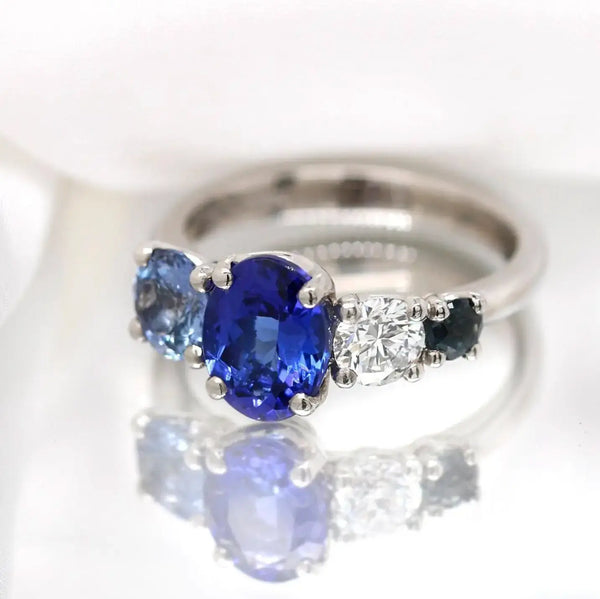
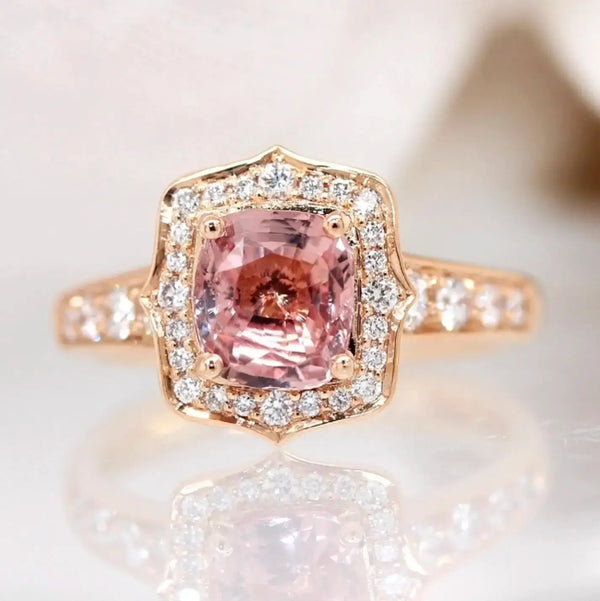
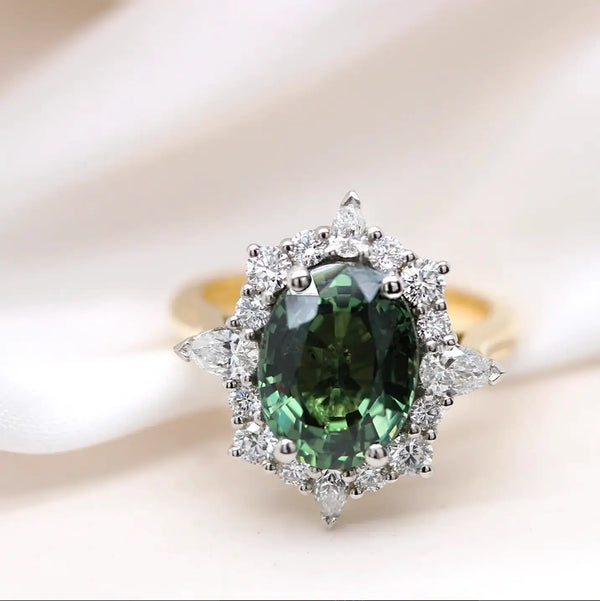
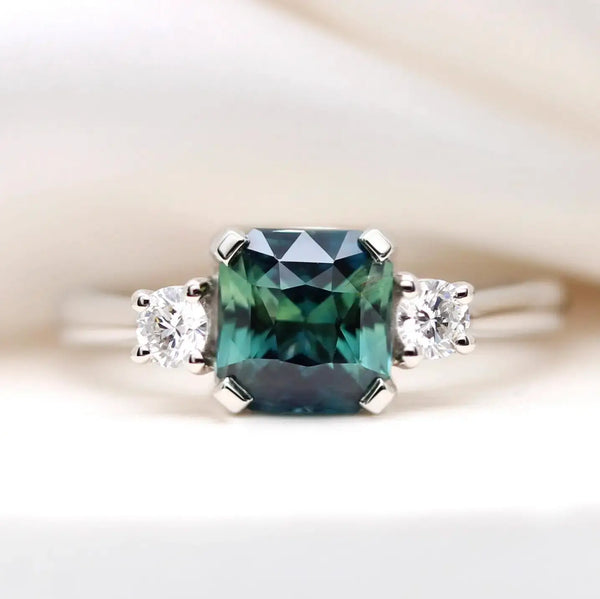
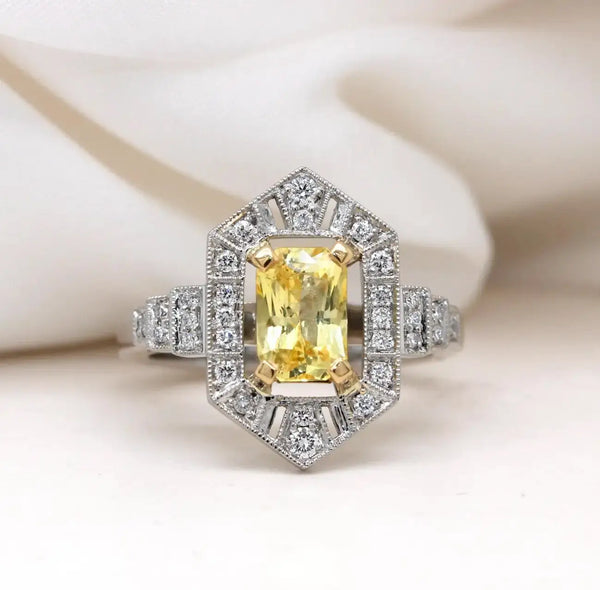
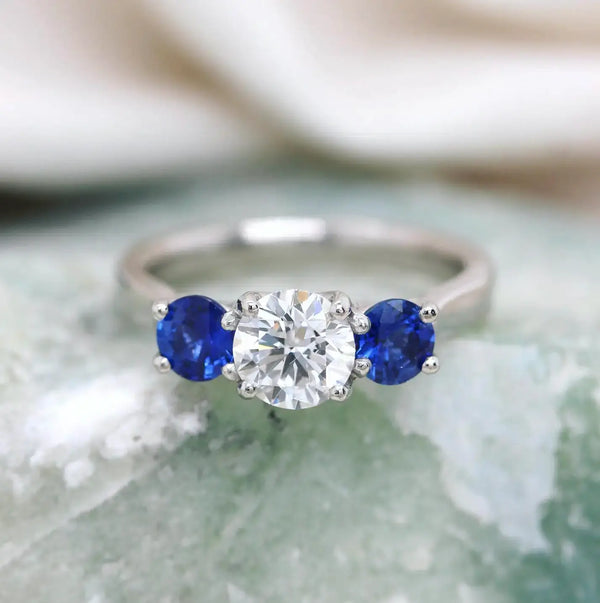
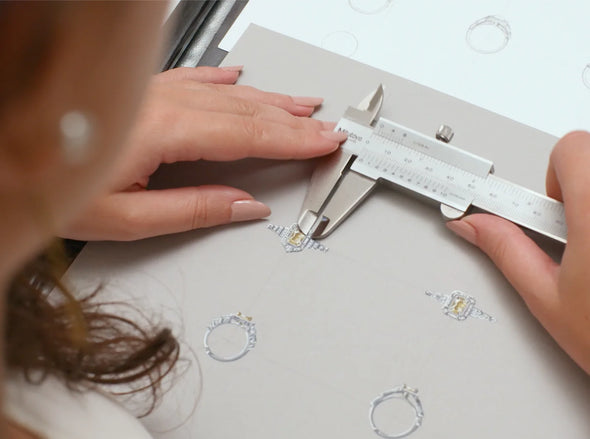
Bespoke Services
Design your own bespoke engagement rings and transform ideas into reality.
We specialise in made-to-order diamond engagement rings. Whether you recreate one of our classic designs or have an idea of your own.
